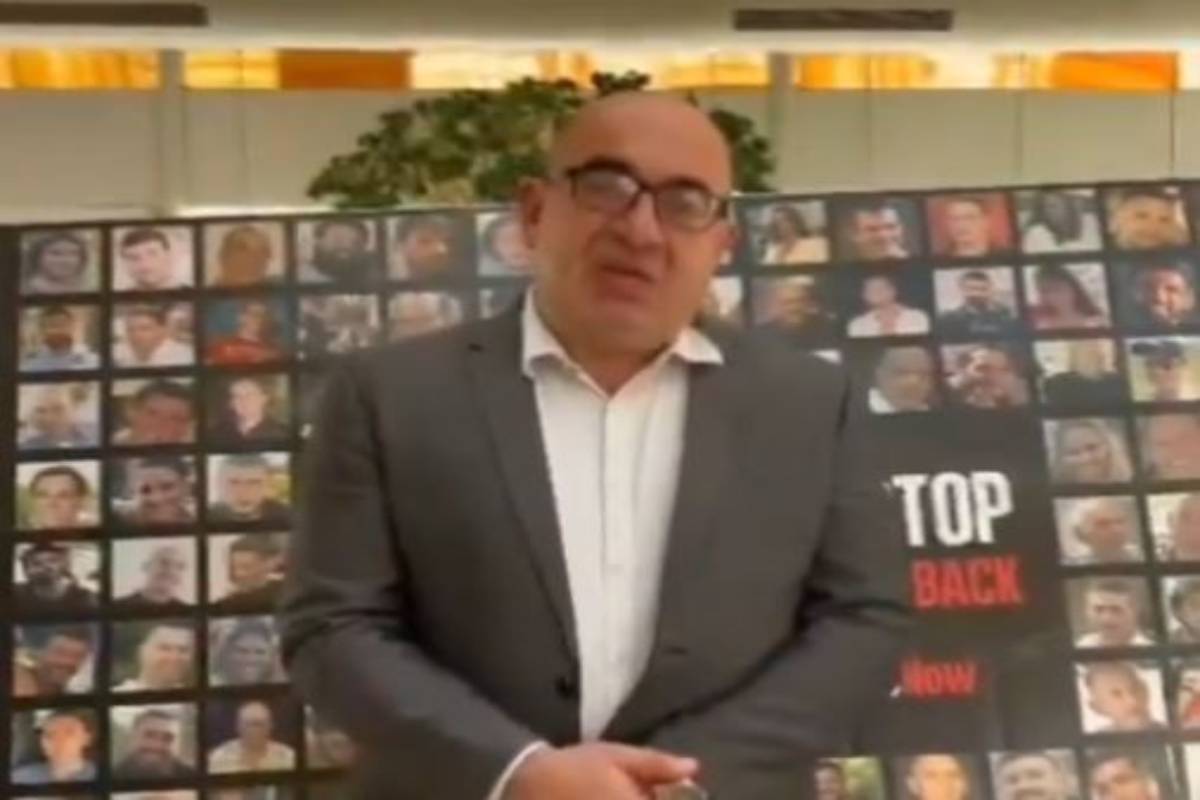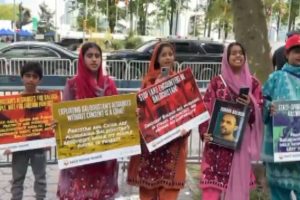Israel’s relations with the United Nations have changed for the worse since the country’s war with the Palestinian militant group Hamas started two months ago.
“The war is a watershed (moment) in our relationship with the UN,” Amir Weissbrod, Deputy Director General of the Israel’s Foreign Ministry division that works with international organisations, said during an online media briefing on Monday.
“Not all but specific organisations.”
On Monday, the UN marked 75 years of the “universal declaration of human rights”.
Weissbrod, a career diplomat, criticised UN Women, the UNICEF and the UN Office for the Coordination of Humanitarian Affairs (OCHA) for what he called “biased behaviour”.
He said the first two UN agencies have not condemned enough the gender violence perpetrated by Hamas against Israeli women, in attacks on agricultural-based communities in the country’s South on October 7, or the kidnapping of dozens of children, many of whom are still captive.
He accused the third UN agency of “partial reporting” of the humanitarian situation or aid distribution in the costal enclave.
At least 1,200 people were killed in Hamas massacres in Israel and some 240 people, including children and the elderly, were taken to Gaza as hostages. A temporary ceasefire, which involved prior negotiations among Egypt, Qatar and the US, other than Israel and Hamas, saw the release of 105 Israeli and foreign hostages in exchange for 201 Palestinian prisoners by early December.
“The only thing we expected was fairness and empathy,” Weissbrod said, adding that it took three weeks after the Hamas attacks for the UN envoy in the region to visit southern Israel.
UN Women released a statement on December 1, condemning the Hamas attacks that took place eight weeks earlier.
The Head of the UN children’s agency Catherine Russell condemned the attacks on a X post on December 6.
Weissbrod said Israel has been investigating the violent sexual crimes of October 7 but that the government has yet to decide on the larger legal approach.
“The police are still gathering evidence,” he said, “we haven’t decided what to do with this but something substantial will be done when the process is finished.”
A UN special rapporteur on human rights is expected to visit Israel in the coming weeks, he added.
Israel’s retaliatory airstrikes and ground offensive have led to a humanitarian crisis in the Gaza Strip, where more than 17,000 Palestinians have been killed, according to media in the Middle East, which cite the Hamas-run Health Ministry that does not distinguish between civilian and combatant deaths.
A large number of children and women have been killed in Israel’s bombings and more than one million Gazans, according to UN estimates, have been internally displaced, with the fighting now moving from the north to the south of the besieged enclave.
In a statement on October 10, the UN said, a commission of inquiry “is collecting evidence of war crimes committed by all sides in Israel and occupied Palestinian territories since October 7, 2023”.
Israel “will not cooperate” with any fact-finding mission that is not neutral, Weissbrod said.
“We will cooperate only with an inquiry that is impartial.”





